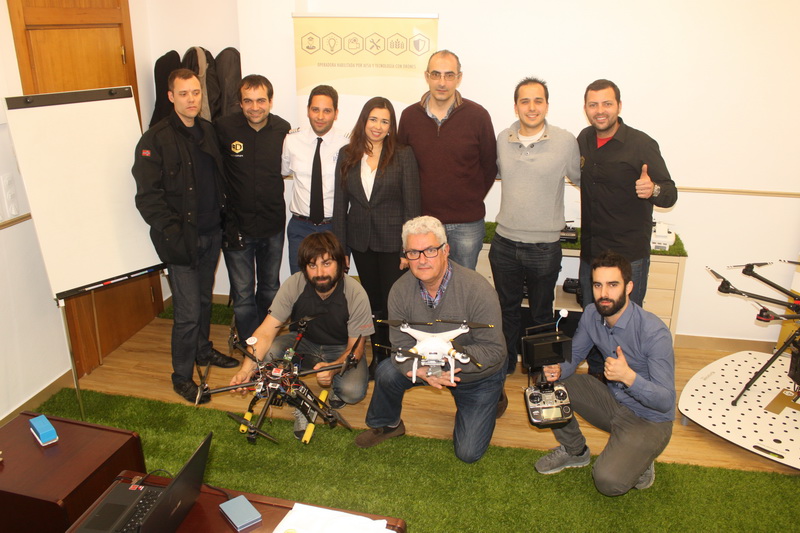Having the goal of creating the largest advanced robotics intelligence center in the world may seem like a stretch for a company that currently focuses on making drones, but for Fabia Silva, it may as well be Dronak that leads the global robotics charge.
"Our intention is to make robots to help humanity," Silva, Dronak's CEO and co-founder, said in an interview with CompassList. "We have designed an original company model, and at this moment I don't see any other company offering the same type of products or services," she added. "I think that robotics will be very much present in our lives, even in ways people cannot even imagine.
"One day, our robots will accompany children to school, or help them to carry their backpacks," she said. "Robots are going to improve the quality of life in many ways."
Silva, a Brazilian and serial entrepreneur who has also run architectural and fashion ventures, said Dronak, which is now in its fourth year of operation and is based in Bilbao, Spain, is also seeking funding as it attempts to close what she said is a "technological gap" of five to 10 years to bring the robot-human alliance to fruition.
In addition to focusing on drone-making and drone solutions, Dronak offers tailored technical services to the agricultural/hydrology industries through robotic automation, AI, deep-data science, and communications technologies. One technology Dronak is trying to master is blockchain-based security systems. A company offering similar technology and products as Dronak is American robotics design firm Boston Dynamics, but it's focused on the military market.
Seeding its future
With a team of 16, Dronak is accelerating its growth strategy. "We need financing to obtain more equipment and start working on the projects that we already have on the table. We could be billing more than €12m – the value of just one of the projects in the pipeline," Silva said.
Started with just €6,000 in funding, Dronak used a lean startup model to achieve organic growth, optimizing the resources it had. Now, though, Dronak is taking direct aim at becoming a major player in the global robotics solutions market, which will be worth an estimated US$100bn by 2020 and US$500bn by 2025. To meet expected demand, Dronak plans to initially raise €1–2m in seed funding from investors in exchange for a maximum 30% equity stake.
For now, though, Dronak's main source of revenue is making purpose-built drones: for audiovisual projects and advertising, precision agriculture, industrial maintenance and security operations. Another income source is the supply of human pilots to operate and manage the drones for clients. The company also provides a "pilot school" that is open to anyone in the robotics industry and to members of the public. "Each of these three areas of the company are part of our business services model," Silva explained.
One of Dronak’s latest projects is an indoor drone that works without a global positioning system (GPS). It made a great impact at the Auvsi Xponential fair earlier this year in Chicago, surprising even Silva. The indoor drone uses a positioning system based on satellite simulation within a building to overcome GPS gaps that inevitably occur in enclosed spaces (steel structures are especially susceptible to GPS gaps.)
"Not only was it at the same development level as in the US, but above," Silva said.
A global outlook
Another Dronak project in the works is a drone designed to collect data on large, remote expanses of agricultural land, such as in Africa, where it is sometimes difficult to ascertain the degree of degradation of land surfaces due to the vast size of some farmland. Until now, evaluating such areas has been based more on eyeball judgments than on any objective measurements.
In addition to trying to help solve agricultural and environmental issues, Silva said another of Dronak's main aims is promoting interactions among people and improving human engagement with machines. She said that Dronak's multinational team of Spaniards, Brazilians, Peruvians, Mexicans and Argentines is passionate about solving global problems, and that the company has even rejected potential investors who don't share the company's values and goals.
Dronak's CTO Kayus Almeida Basque is the youngest of the company's co-founders. Almeida is responsible for managing robotic flight projects from proposal to implementation, as well as for gathering research on industry trends, products and suppliers. The other co-founder, CFO Ricardo Rueda, is Brazilian, like Silva, and trained as an architectural draftsman before building a career in finance.











